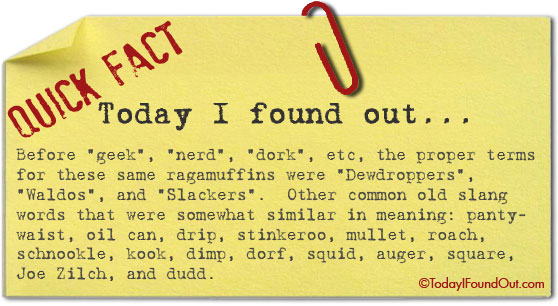Source: Random Quick Facts
SLANG
1. The place of slang is in real life.
There, an occasional indulgence in it is an almost necessary concession to our gregarious humanity; he who declines altogether to let his speech be influenced by his neighbours' tricks, and takes counsel only of pure reason, is setting up for more than man.
2. In writing, slang is bad; idiom is good.
Slang and idiom are hard to distinguish, and yet, in literature, slang is bad, and idiom good. Slang is perishable; the fact is that most of it perishes; but some survives and is given the idiomatic franchise; 'when it doth prosper, none dare call it' slang. The idiomatic writer differs chiefly from the slangy in using what was slang and is now idiom; of what is still slang he chooses only that part which his insight assures him has the sort of merit that will preserve it. In a small part of their vocabulary the idiomatic and the slangy will coincide, and be therefore confused by the undiscerning. The only advice that can be given to novices uncertain of their own discrimination is to keep carefully off the debatable ground. Full idiom and full slang are as far apart as virtue and vice; and yet
Therefore:
3. Avoid slang in writing except in dialogue.
The writer who deals in conversation may sometimes find it necessary, by way of characterizing his speakers, to put slang in their mouths; if he is wise he will make the least possible use of this resource; and to interlard the non-conversational parts of a book or article with slang is as bad as interlarding with foreign words.
Good and sufficient occasions will arise—rarely—for using slang vocabulary. To those, however, who desire that what they write may endure it is suggested that, as style is the great antiseptic, so slang is the great corrupting matter; it is perishable itself, and infects what is round it—the catchwords that delight one generation stink in the nostrils of the next.
4. Do not place slang in quotation marks.
The effect of using quotation marks with slang is merely to convert a mental into a moral weakness. When they are not used, we may mercifully assume that the writer does not know the difference between slang and good English, and sins in ignorance: when they are, he is telling us, I know it is naughty, but then it is nice. Most of us would rather be taken for knaves than for fools; and so the quotation marks sometimes are there.
The 19th Century slang quoted below has safely passed into the realm of today's idiom, but the principal remains the same: don't use quotation marks with slang.
When the madness motif was being treated on the stage, Shakespeare (as was the custom of his theatre) treated it "for all it was worth", careless of the boundaries between feigning and reality.—Times.
They will find no subtlety in it, no literary art, no profundity of feeling; but they will assuredly find breadth, colour, and strength. It is a play that hits you, as the children say, "bang in the eye".—Times.
 |

